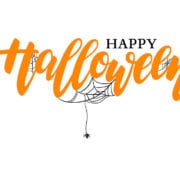Kids with autism can enjoy Halloween
It’s that time again when little ghosts and goblins roam our neighborhoods and homes are decorated with spider webs, skeletons and all things scary. It’s Halloween, which could be an overwhelming time for our children with autism.
Here are tips from Autism Speaks to make Halloween fun for your child with autism:
Before Halloween:
- Create a visual story about what Halloween may be like for your child using pictures or drawings. This will help your child prepare for the day’s activities.
- Try on costumes before Halloween. If the costume is uncomfortable or doesn’t fit right, it may cause unnecessary distress and ruin their fun.
- If your child does not like their costume, don’t make them wear it.
- Instead, talk about the situation and try to uncover the reason why they don’t like it. After you talk with your child, they may gradually get used to the costume. Have them wear it for short periods of time and at increasing intervals over time.
- Consider a Halloween costume that fits over your child’s regular clothes, such as butterfly wings or capes.
- Practice going to a neighbor’s door, ringing the bell or knocking on the door to receive candy.
Halloween Day:
- Know your child’s limits and do only what he or she can handle. For example, if your child is not comfortable trick-or-treating for long periods, start by going to three houses.
- Take your child to an activity in the community, such as a school festival or a neighborhood party, where the child is already comfortable and knows people. Partner with family and friends that your child likes.
- If you are giving out candy at your home, give your child the option to also give a piece of candy. During the day, practice greeting people and giving out candy. If your child is afraid of going out at night, plan indoor or daytime Halloween activities.
- Remember, Halloween is supposed to be fun. Don’t let it stress out your child or you!
If you have additional questions about preparing your child for Halloween, please contact your child’s Little Star Center program manager. Families not enrolled at Little Star should contact Vince LaMarca, BCBA, Little Star Center clinical director.


